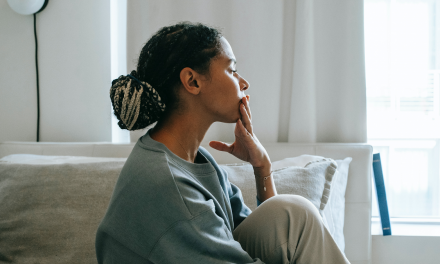The demands of social distancing amidst the coronavirus pandemic has many individuals working remotely from their homes for the first time. In the wake of the pandemic, 42% of the United States workforce transitioned to remote working, doubling the amount of people working from home. For some, it’s a dream come true. For others, working from home has been an unpleasant adjustment, a learning curve, and a trigger for both pre-existing and new experiences of anxiety and depression.
Working from home brings about a myriad of inconveniences, including technical difficulties, miscommunication among team members, easy distractions (such as pets, children, family members, and household chores), loss of structure, and the inability to unplug from work at the end of the day. After transitioning from an office space to remote work, it’s no surprise if people struggle to produce their previous workload or sustain interest in daily tasks. For others, working from home – in addition to prolonged distance from family and friends – fosters deep feelings of isolation and hopelessness, as their normal routine has been upended. Individuals might find themselves slipping into mental anguish whilst keeping up with the demands of life and work, from their homes, in the middle of a global pandemic.
While clinical depression can be brought about by biological factors in the brain, circumstance – such as sudden change in routine or threat to one’s sense of security – can bring about lasting despondency. Contrary to what one might think, working from home can increase tension. In a 2017 report, the European Foundation for the Improvement of Living and Working Conditions found that 41% of remote employees reported higher stress levels, as opposed to the 25% of their in-office coworkers.
For those who already struggle with clinical depression and/or generalized anxiety disorder, the increased isolation and loneliness of social distancing and the pressure of maintaining work from home can exacerbate their conditions. For others, their malaise may be brand new and directly related to the pandemic and current affairs. If someone experiences instances of sadness, demotivation, irritability, anxiety, and changes in sleep patterns and appetite for two weeks or more, they may be experiencing a depressive episode.
In the midst of the unknowns the population has faced in the last year, coupled with grief and insecurity, it’s important to fall back on coping mechanisms that soothe mental unrest. First, it’s important to prioritize moments throughout the day dedicated to self-care. While popular methods of self-care portray face masks and bubble baths, practical self-care encompasses scheduled mealtimes, stretching, walking, playing and cuddling with pets, staying hydrated, and generally checking in with one’s well-being.
If focus or, on the contrary, forgetting to take breaks is a struggle, the Pomodoro Technique is helpful. The method is structured by a timed 25 minute block of working, followed by a 5 minute break. After four 25 minute work blocks (around 1.5 hours in total), extend the breaks to 20 to 30 minutes. Proceed with this method of alternating work and rest until tasks are completed. If the social environment of the office is missed, scheduled virtual lunches and virtual coffee breaks with coworkers combat feelings of seclusion.
While it may be difficult to separate work and home when work is at home, it’s important to stick to a schedule. For example, at 5 p.m. every workday, log out of email and project management systems and turn off work-related notifications via mobile. These simple actions help lessen anxiety and make it easier to unplug from work within the home, as opposed to working extra hours because the tasks are readily available and constantly demanding attention.
Other activities and habits to consider include those that give the mind a quick restart. Get fresh air, exercise (as simple as dancing around the living room), limit news consumption, and only engage with sources that produce reliable information concerning COVID-19, such as the Centers for Disease Control and Prevention and the World Health Organization. Additionally, incorporate pockets of recreation such as journaling, yoga, reading, music, etc., throughout the day.
Finally, it is vital to extend compassion to oneself when functioning in the midst of a crisis such as a global pandemic. It’s easy to succumb to fears of inadequacy when one isn’t performing at their usual capacity due to sudden change and mounting unknowns. For this, it’s important to keep track of things already accomplished (as opposed to a to-do list) and celebrate small wins, such as eating both breakfast and lunch at a normal time or completing a task ahead of deadline. A spotlight on positives will help counteract what’s perceived as negative. Additionally, stay in touch with family and friends, maintaining a social support system that’s not associated with work.
When depression becomes overwhelming, no matter how many healthy coping mechanisms are implemented, it’s time to get in touch with a mental health professional. There are plenty of therapists that offer Zoom consultations to treat people from the safety of their homes. However, as the COVID-19 vaccine rolls out, more therapists offices will open their doors to in-person sessions. Psychology Today offers a directory of therapists and psychologists by location and health coverage.
If you are struggling with pandemic stress and depression in the midst of working from home, here are some helpful resources:
Centers for Disease Control and Prevention (CDC)
COVID-19: Managing Stress and Anxiety
American Psychiatric Association (APA)
COVID-19/Coronavirus Resources and Information Hub
Coronavirus and Mental Health: Taking Care of Ourselves During Infectious Disease Outbreaks
World Health Organization (WHO)
COVID-19/Coronavirus: Mental Health Considerations
Substance Abuse and Mental Health Services Administration (SAMHSA)
Tips for Social Distancing, Quarantine and Isolation
National Alliance on Mental Health (NAMI)
COVID-19 and Mental Illness Guide
For high levels of stress, anxiety or depression, reach out for support:
Crisis Text Line: Text 741741
National Suicide Prevention Lifeline: 1-800-273-8255








